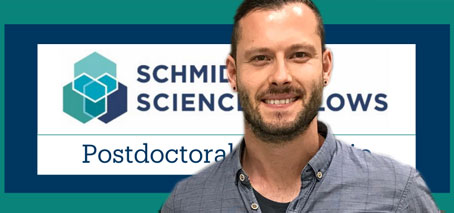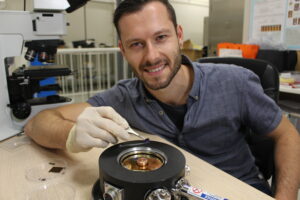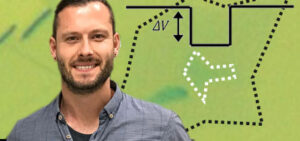Congratulations to Dr Matthias Wurdack (FLEET/ANU), who has received a Schmidt Science Fellowship to develop artificial retinas.
Matthias started his’ PhD at ANU in 2018, working with FLEET CI Elena Ostrovskaya to create, investigate and engineer the properties of hybrid light-matter particles in atomically-thin semiconductors with the aim to realise room temperature superfluidity based on this material platform, and understand and elevate their potential for future ultra-energy efficient information technologies.
In his five years at FLEET he has been a valuable member of many cross-node research teams, as well as contributing enthusiastically to Centre training and outreach.
As a Schmidt Fellow, Matthias will pivot from condensed-matter physics to biomedical engineering to work on artificial retinas, aiming to alleviate blindness and increase our knowledge of how our minds work.
“My ultimate goal is to merge optoelectronics with neuroscience for retinal implants/bionic eyes, diagnostic tools, human augmentation, treatment of neurodegenerative diseases, and more” says Matthias.
“I understand that there is a large gap between how much we know about our exterior world and our brains, e.g., how consciousness is formed, and I hope this research will contribute to close this gap besides helping to find cures for neurological diseases.
“The training received by my mentors and supervisors, especially by Elena and my collaborators in FLEET, have equipped me with the required skills to move between disciplines, which will be key to succeed.”
The Schmidt Science Fellows Program helps to solve bigger problems faster by identifying, developing, and amplifying the next generation of science leaders, building a community of exceptional scientists and supporters of interdisciplinary science, and leveraging this network to drive sector-wide change.





